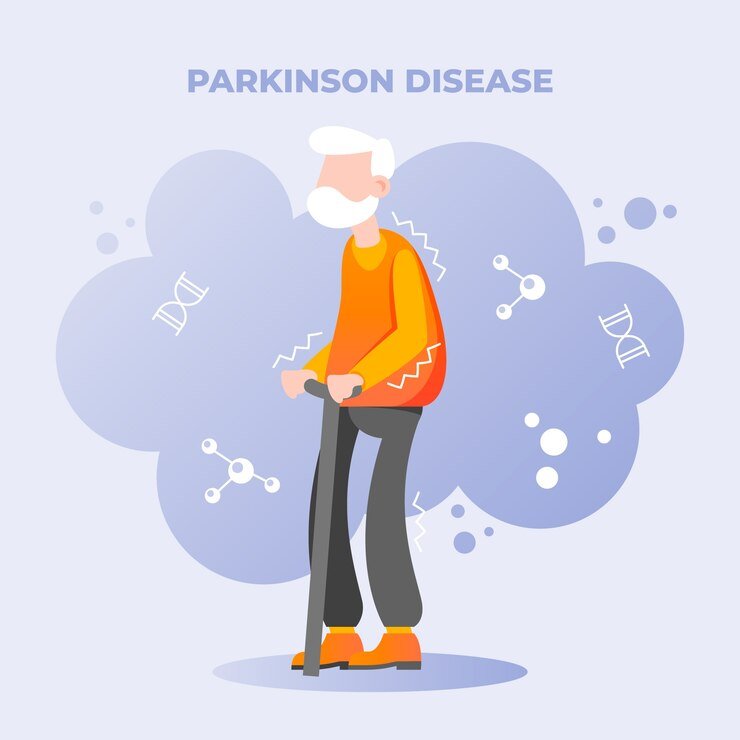Parkinson’s disease is a brain disorder which involves uncontrollable movements, such as shaking, stiffness, and difficulty with balance and coordination.
It may also cause mental health changes in an individual. Parkinson’s disease is not curable and may be lifelong, however, medication can help control the symptoms.
This condition is typically seen in people over the age of 60, mostly in men and women. However, there is no scientific reason for this so far. There are rare cases of individuals with Parkinson’s disease who develop this disorder before the age of 50. Early-onset types of Parkinson’s are frequently inherited—but not in all cases. Some types have been linked to specific gene alterations.
CAUSES OF PARKINSON’S DISEASE
The exact cause of this condition is unknown but genetic links are the only recorded cause for this disease. This brain condition begins when the nerve cells become impaired or die, causing less dopamine release. This leads to issues with movement.
People with Parkinson’s disease also experience loss of nerve endings which generate norepinephrine, the primary chemical messenger of the sympathetic nervous system. This is responsible for the management of several functions of the body, such as heart rate and blood pressure. This explains some of the non-motor symptoms of this condition.
WHAT ARE THE SYMPTOMS OF PARKINSON’S DISEASE?
The common symptoms that one experiences in this condition include:
- Tremor in hands, arms, legs, jaw, or head
- Muscle stiffness and tightness
- Slowed movement
- Decreased balance and coordination, sometimes leading to falling
Other symptoms that are noticed include:
- Depression and other mood changes
- Having problems in chewing, swallowing and sometimes speaking
- Urinary problems, gastrointestinal issues and constipation issues
TREATMENT FOR PARKINSON’S
There has been no cure found for this disease, but certain medications and therapies can help manage its symptoms.
Certain medications may be prescribed by a neurologist that can help treat the symptoms of Parkinson’s. These help in:
- Increasing the level of dopamine in the brain
- Enhancing brain chemicals, such as neurotransmitters, which transfer information between brain cells
- Controlling the non-motor symptoms of this condition
A key therapy for Parkinson’s is levodopa. This acts as a dopamine replacement agent for people with Parkinson’s disease. The nerve cells in the body utilize levodopa to make dopamine to fill the brain’s diminishing supply.


